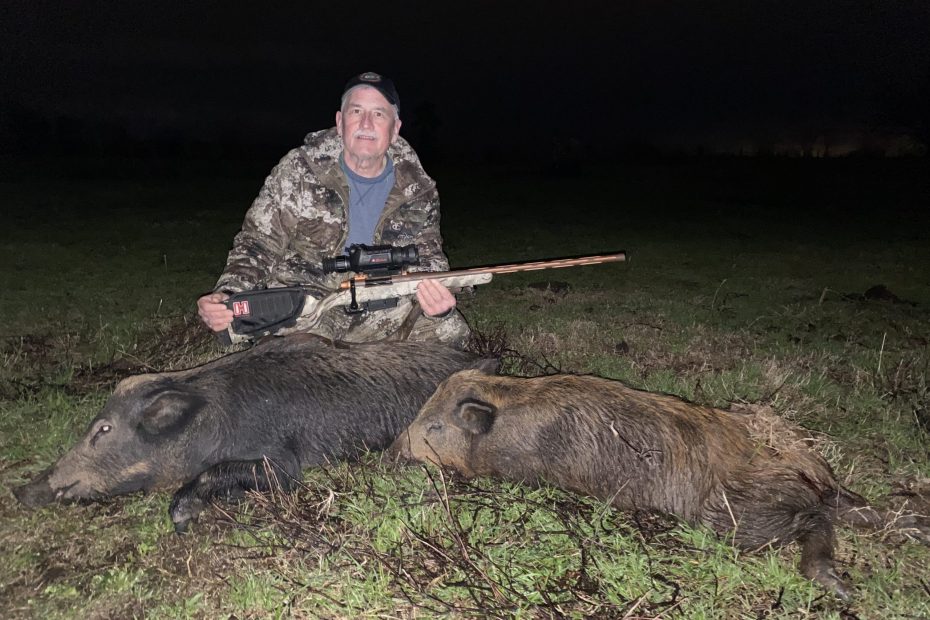Just after midnight found me climbing over a huge aluminum ranch gate when the East Texas lightning cut across the skies above. For a second, I saw the line of pine trees several hundred yards ahead and the muddy field in between, plus the open space on the right where I’d spotted hogs earlier. My brain snapped a mental picture of myself, too, the lighting like a camera’s flash: camo clothing and a rifle strapped over my back.
The rifle was a custom bolt action, The Overseer, chambered in 6.5 PRC and made by Boring Rifles of Beaver, Utah. The rifle was topped with one of the first entries into the thermal scope market by Burris Optics, the BTS 50 featuring 3.3×13.2 magnification, 400×300 resolution, and a 50MM objective lens.
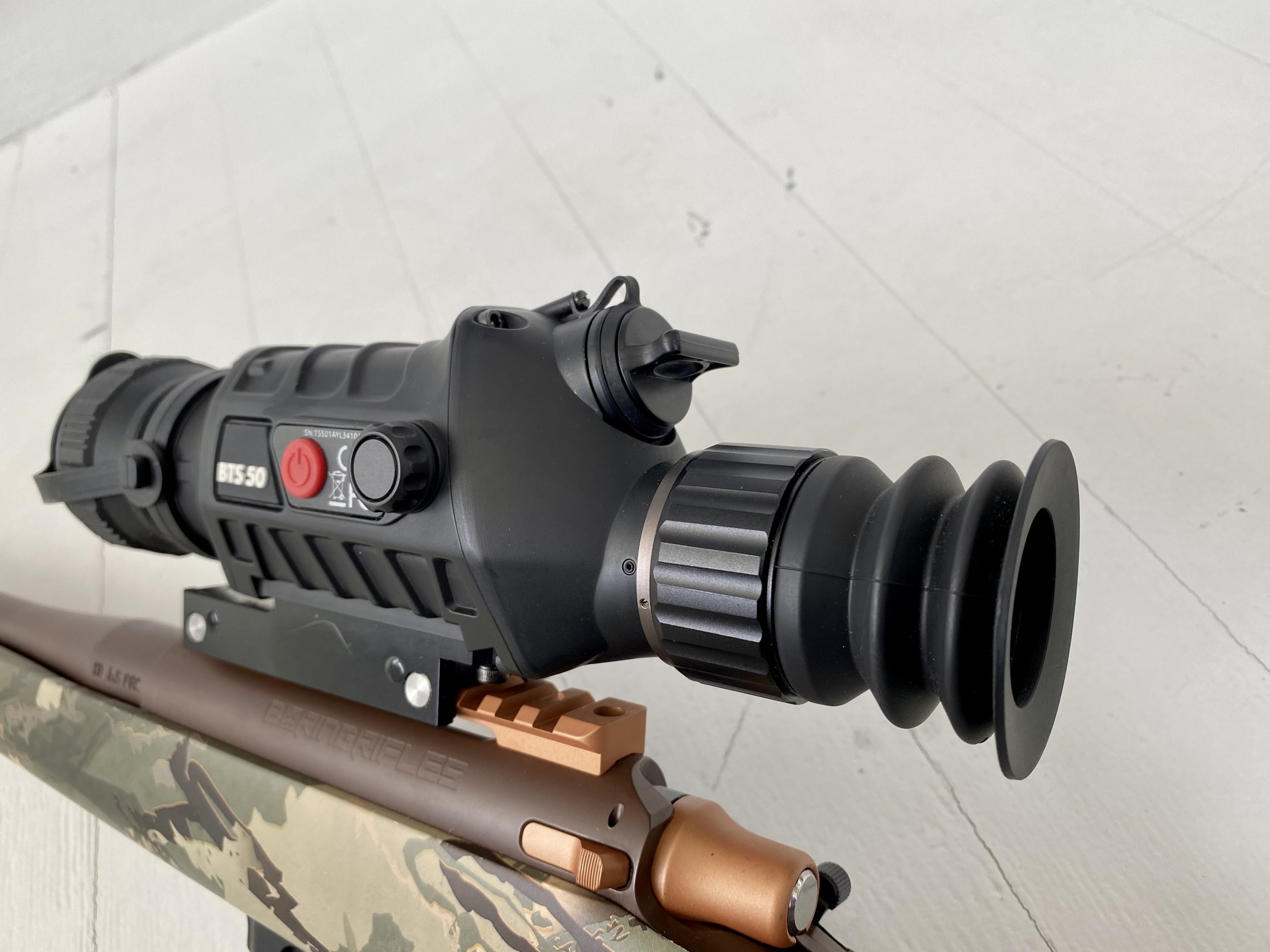
Time to see just how well the thermal scope and rifle combo worked in the field.
I dropped down onto the other side of the ranch gate and onto the saturated soil. I was hunting private property south of Longview, Texas, in early April 2021, and it had been raining much of the last 24 hours. It had been raining pretty steady for the last three days of my time here in East Texas, which made the fields and pastures even more inviting to the feral hogs that so love to root up the ground.

As a passenger, with friend Todd Long driving, I’d spotted the sounder of hogs in the field using a handheld thermal. Long stopped at the ranch gate to let me out. He knew the property owner, who had given us permission to hunt with only two conditions: don’t shoot my cattle and kill every hog you can!
The reason for the first condition/requirement was obvious enough. The second was due to the sounders of hogs regularly tearing apart the owner’s pastures.
I walked steadily to the tree line trying to avoid pools of water and not make too much noise as my boots “squished-squished” over the ground. Bolts of blue lightning kept slashing the sky overhead, me hoping the actual rain would hold off.
I got to the edge of the pine trees and shouldered the rifle, scanned with the BTS 50. I saw a handful of hogs further into the field, white-hot in the thermal lens, maybe 200 yards distant and drifting away.
I quickened my pace, making for the big lone pine at the end of the tree line, its twisted limbs seeming to reach up into the scudding white clouds like arthritic arms. That tree stood on a rise in the land, the rest of the property open and sloping down and away from the tree, and here I made my first mistake.
I was so intent on getting to the tree before the hogs disappeared, that I hadn’t done a proper thermal scan before reaching the pine. I was nearly to the tree when the hog grunted, close and not quite a scared grunt but certainly a warning. I got the BTS 50 up to my eye and immediately saw the five hogs scurrying away.
They must’ve been just to the other side of the pine and in a lower spot, heard my squishing boots, and booked. They were on the move but still very close, and I lined up the BTS 50 reticle on the largest one and squeezed the Overseer’s trigger. The hogs shifted into high gear at the rifle’s blast, flat out balling, and quickly disappeared.
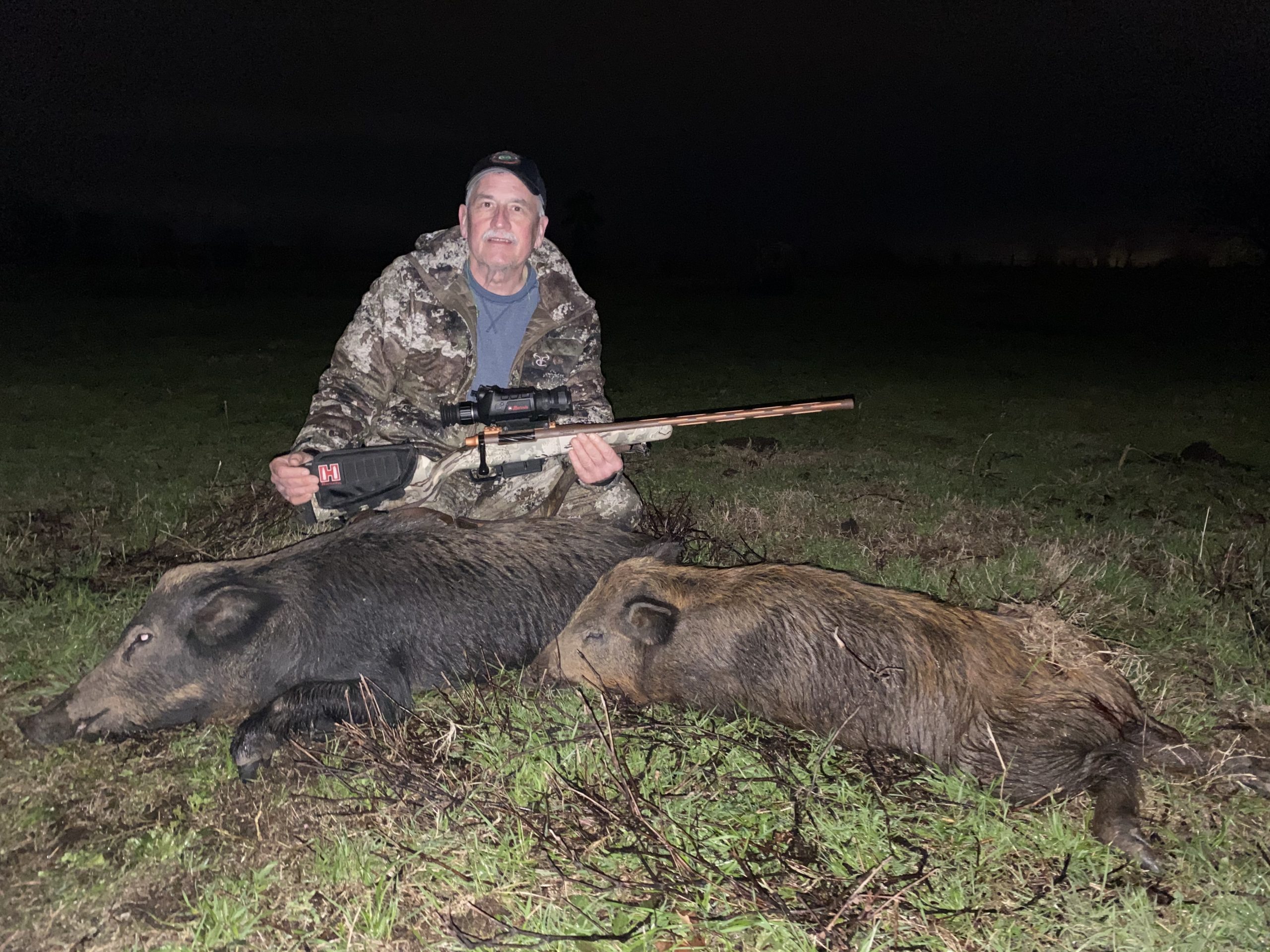
I ran into the field on the other side of the lone pine, scanned and scanned with the Burris but saw no white hump of a dead and downed hog anywhere.
I couldn’t have missed, could I? Damn it, Brian, I told myself, that hog wasn’t more than 75 yards away.
I ran the BTS 50 over the larger, open field before me, while mentally kicking myself for the whiffed shot. A minute later I spotted three white dots bouncing towards me, still hundreds of yards away.
A flash of lightning revealed a fence line ahead. I made for it and set up my rifle on a nice wide wooden post. Through the BTS 50, I saw that the three white dots were definitely hogs. Still heading in my direction. They’d trot and then stop, nose the ground for a few seconds, trot some more, stop. When I guesstimated they were about 150 yards away, I fired, and the lead hog dropped from the impact of the 143-grain Hornady ELD-X bullet.
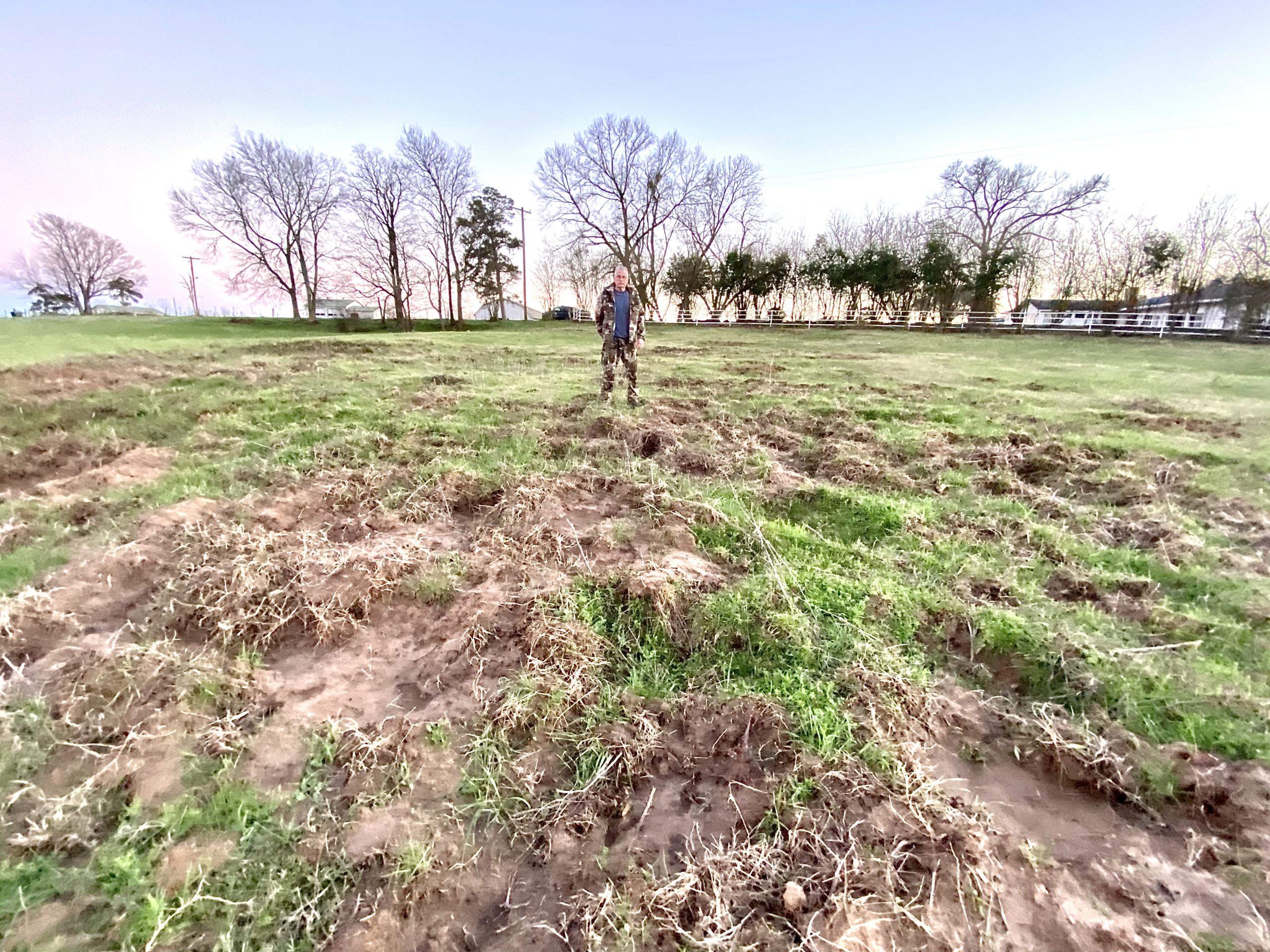
The other two hogs stopped for a moment, unsure what had just happened, and I squeezed the trigger, the second hog dropping. Which was when hog number three figured out he was next on the hit list and bolted in the direction he’d just come.
I tracked number three in the BTS 50, shot a couple times but the hog kept moving, dropping and disappearing into low spots, reappearing on the run. At 300 yards the hog turned broadside (I used a rangefinder the next day to confirm distance) and I was impressed that the animal showed up so very clear and sharp-edged in the Burris thermal.
The hog was still moving, though, and my last shot went wide.
Despite the name, Boring Rifles are anything but. Their Overseer is built around that company’s Parti Starter action, which locked up smoothly and very solidly. The rifle can be ordered in various barrel lengths and mine had a 24-inch stainless steel, fluted barrel. It employed a three-round metal magazine and featured a Timney Elite Hunter trigger, which snapped off light and clean.
Boring Rifles did a great job on the camo-colored hydro-dip of the stock, as well as cerakoting the barrel and receiver. That cerakoting included adding copper-colored touches to the rear of the bolt, the fluting, and the complete Picatinny rail atop the receiver. All of the hydro-dipping and cerakoting were done in house, too.
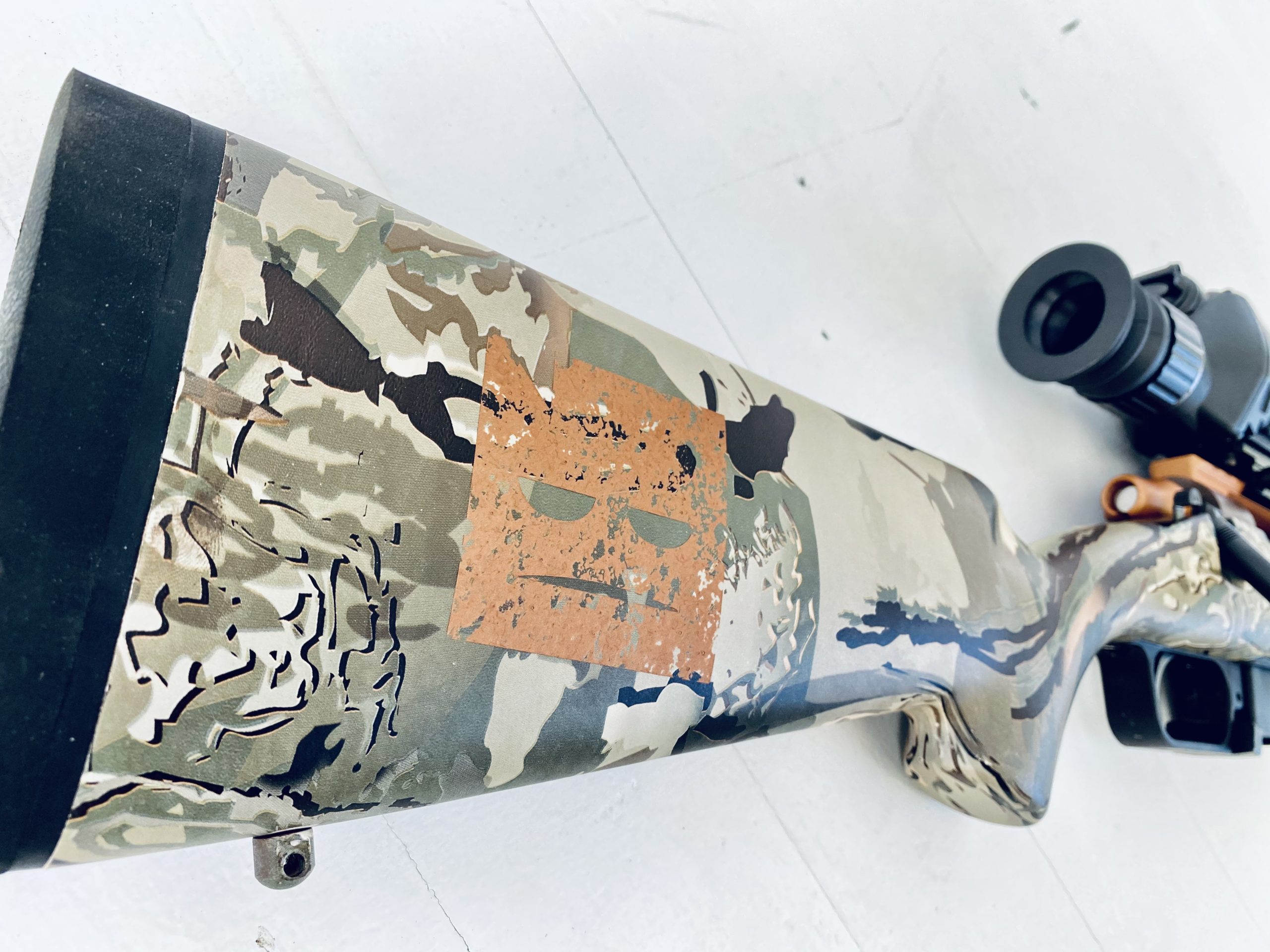
It was a looker!
At my home range in Wisconsin, I first tried out the Overseer with a Trijicon Credo HX 2.5-15×42 rifle scope mounted on the rifle. Using Hornady 6.5 PRC Precision Hunter ammunition, I was soon pegging ½ MOA groups at 100 yards.
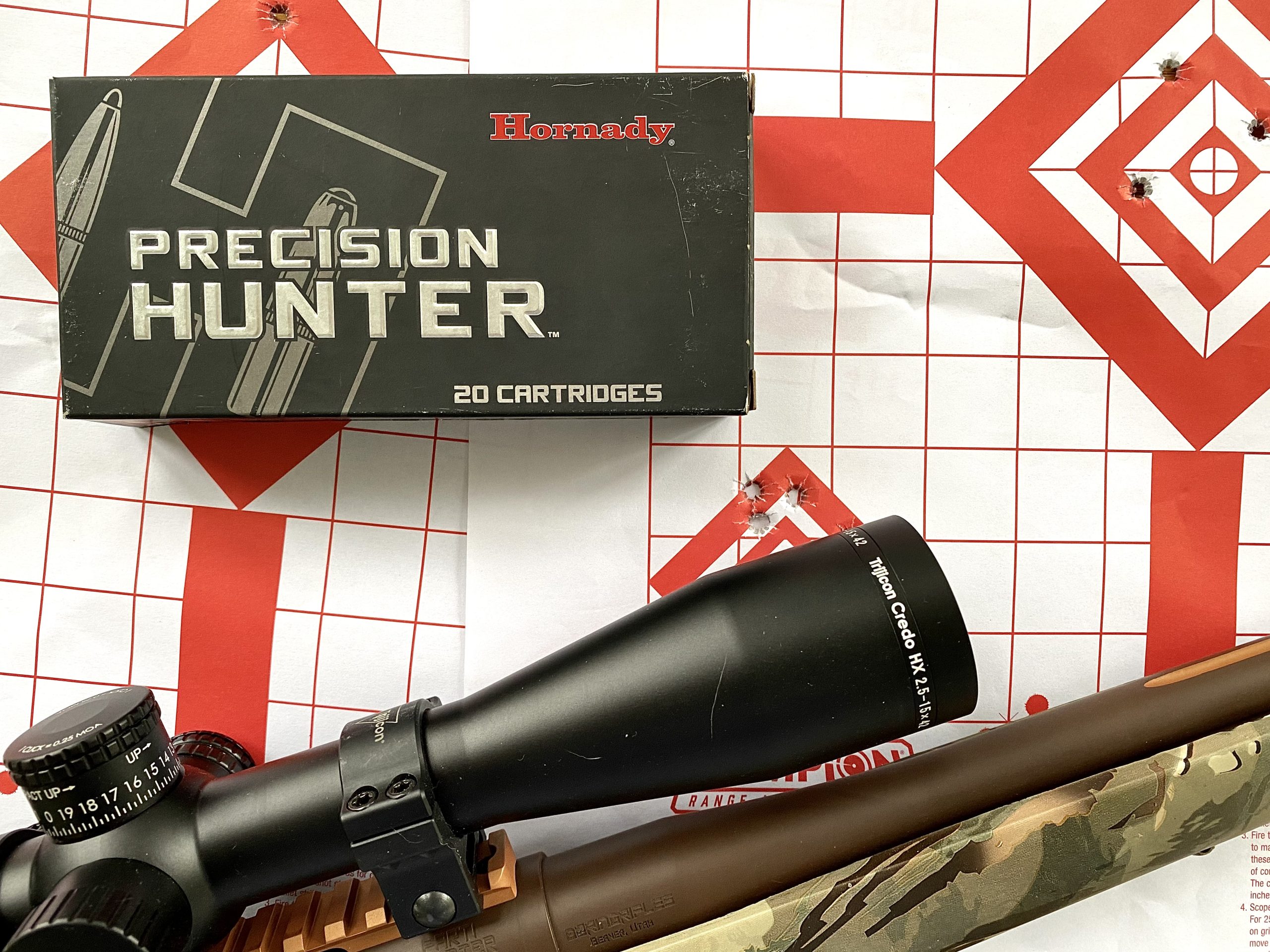
When the Burris thermal arrived days later, I mounted the BTS 50 onto the Overseer in anticipation of my East Texas hunt. I zeroed the rifle and BTS 50 at 50 yards, using a HotHands hand warmer as my bullseye, the heat generated by the packet perfect for practice with a thermal.
Zeroing the BTS 50 was easy. In fact, the controls on the BTS 50 were among the easiest and most intuitive I have ever used. Some very fine and expensive thermals have so many menus and options, that it can take hours to learn the ins and out of a particular thermal unit. Me, I just want to shoot and stack up hogs with a thermal, and the BTS 50 allowed that to happen quickly.
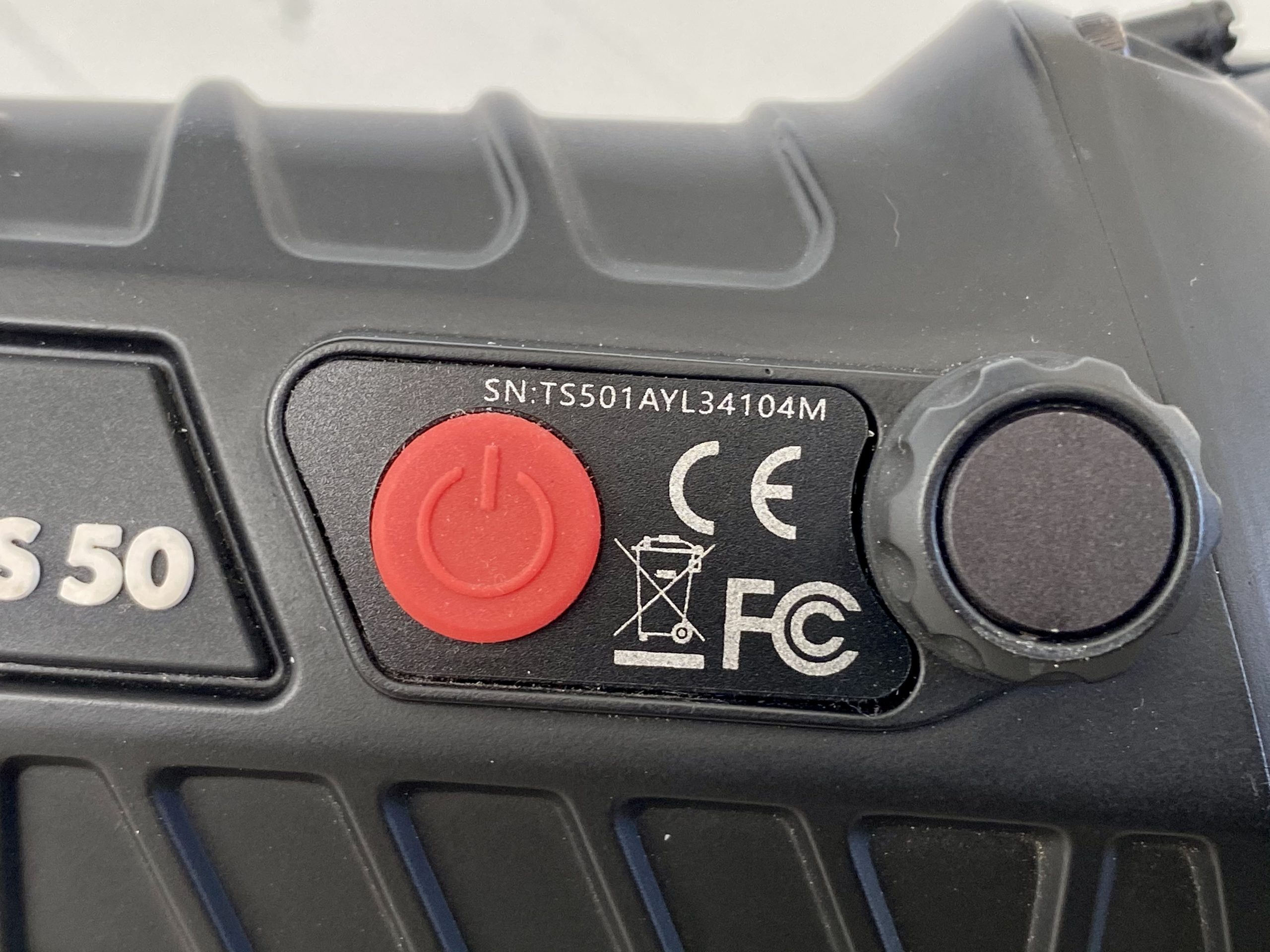
The BTS 50 menu operates by a single controlling Roller Button on the unit’s left side. I easily accessed the Function Menu by pressing the button, then making adjustments by turning the Roller Button up or down, and then pressing down when the right function adjustment was found.
The BTS 50’s rechargeable battery is inserted in the top and rear of the unit via a screw-in compartment (a recharger is included), and you can also record and transfer video with the BTS 50.
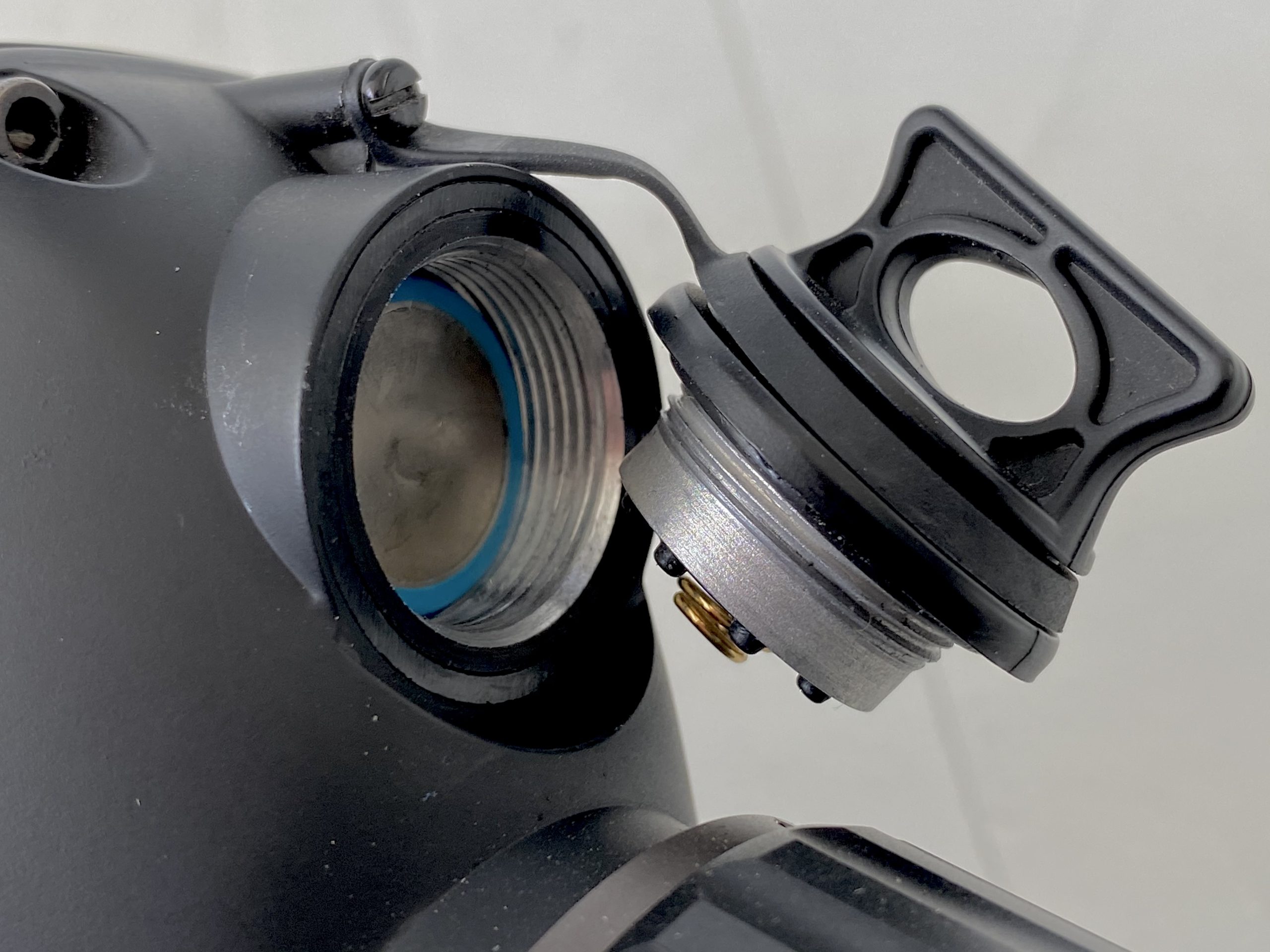
I shot some pretty good groups at the 50 yards and then placed a new HotHands at 100 yards. My expectation was any group at a couple inches would be good enough for hog hunting. While other thermal units I’d used in the past could produce decent groups, they weren’t exactly precise.
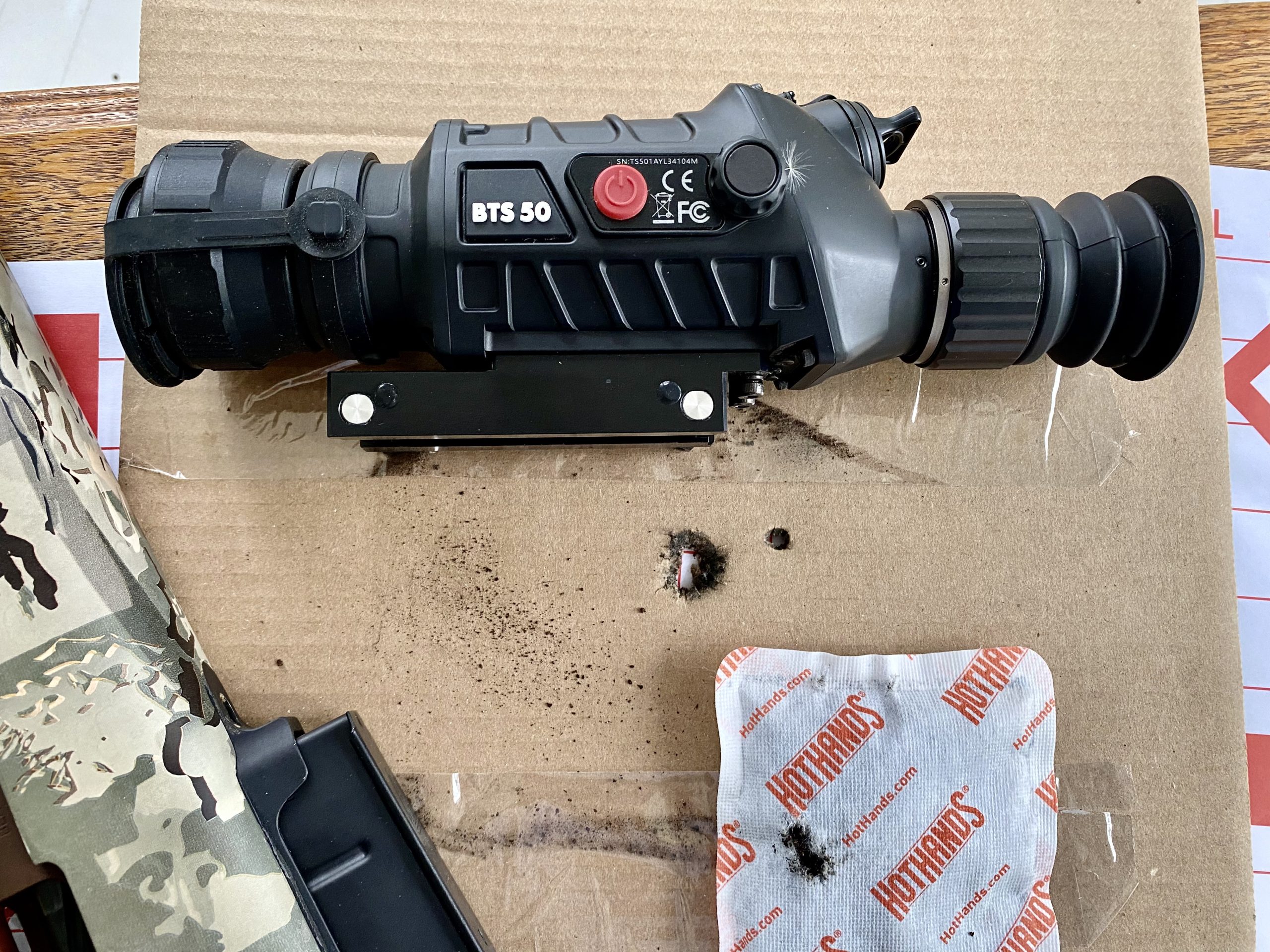
Three of my first four shots with the BTS 50 and the Overseer were all touching at 100 yards, but high and left, and with one flyer. I adjusted the BTS 50’s windage and elevation and proceeded to drill another three-shot group with each of the Hornady rounds touching.
Damn! I knew I had a hell of a night hogging rig.
The one thing I would change about the BTS 50 if I could? The mounting system made to fit onto a Picatinny rail. True, I had no problems mounting it and the unit held fast. But the metal sides where the mount attaches to the rail were pretty thin, the bolts securing the sides to the rails smallish. I did worry about the BTS 50 holding solid if the unit took a good banging around, which is very possible anytime I’m hunting but even more so at night.
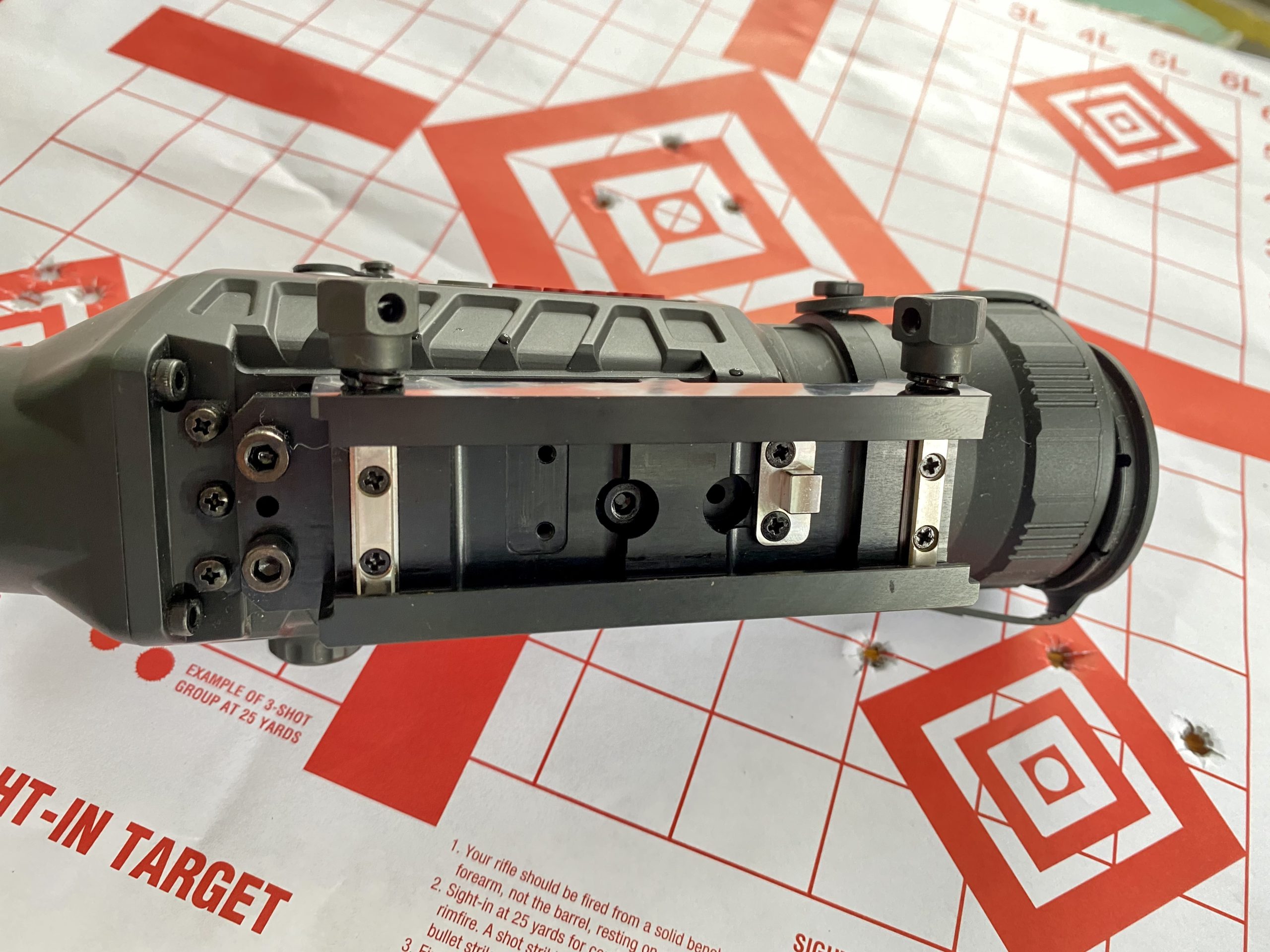
The people at Burris tell me that a new bolt action rifle mount will soon be available for the BTS 50 and its little brother the BTS 35 (much the same unit but with a smaller 35MM objective lens and lower magnification). Burris also offers a handheld unit, the BTH, rated to hot track targets over 750 yards away, and a clip-on model, the BTC with 4x zoom.
Thermal isn’t cheap, and the BTS 50’s $4,100 price tag is not chump change. But in a world of $5K to $10K thermal rifle scopes, the BTS 50 holds its own and with such easy-to-use controls, is arguably a better, more functional unit than many of the more expensive thermal scopes.
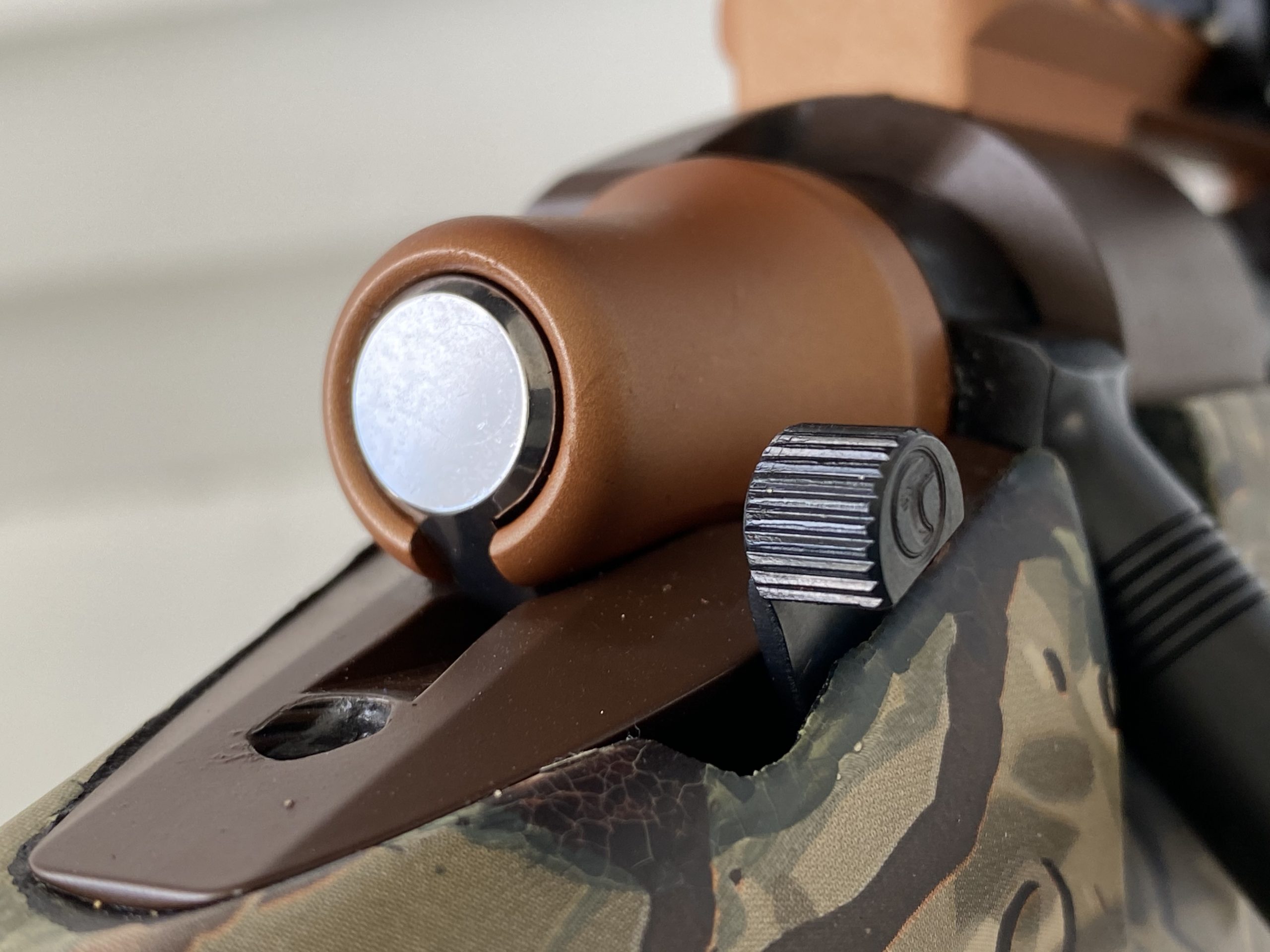
Specifications: Overseer Rifle from Boring Rifles (as tested)
Caliber: 6.5 PRC
Action: Boring’s Parti Starter Bolt
Capacity: 3+1
Magazine: 3-round, metal
Stock: Carbon fiber composite, hydro dipped with pattern of choice
Barrel: Stainless steel, 24” and fluted, cerakoted
Sights: None
Receiver: Stainless Steel
Trigger: Timney Elite Hunter
MISC: Custom cerakote and hydrographic paint scheme included in base price. Recoil pad and sling swivels included.
MSRP: $3,999.00 (as built)
Specifications: Burris Optics BTS 50 Thermal Riflescope
Magnification: 3.3-13.2x
Digital Zoon: 2x, 4x
Objective Lens: 50MM
Resolution: 400×300
Eye Relief: 1.9 in.
Color Palettes: Black hot, white hot, red hot 1, 2, and 3, green hot, blue hot
Weight: 25.4 oz.
Dimensions: 9.8(l)×3.5(w)x2.9(h) in.
Power: 1×18650 Rechargeable Battery, rated at 3 hours of use
MISC: Stadia metric ranging, 10 reticle options, manual and auto NUC, battery recharger
MSRP: $4,199.00
